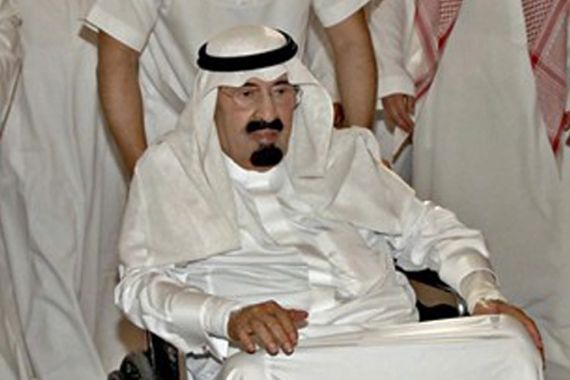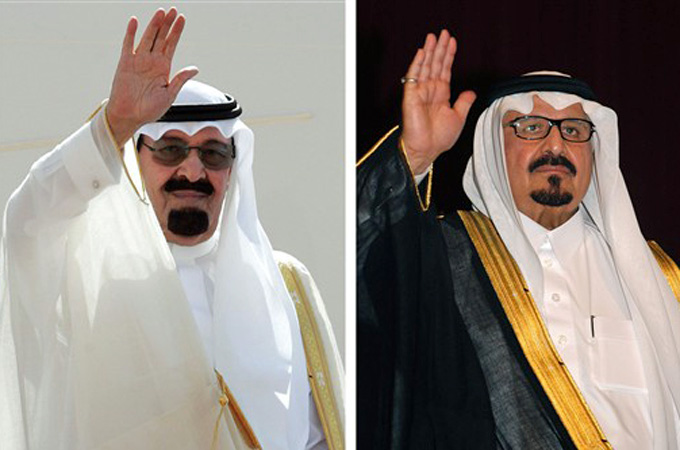Saudi king has ‘successful’ surgery
Royal court says operation to treat King Abdullah at New York hospital for herniated disc ends well.

 |
| King Abdullah, left, handed over power to Crown Prince Sultan, right, when he travelled to the US for treatment [AFP] |
Saudi Arabia’s King Abdullah bin Abdulaziz has undergone a “successful” operation in the United States for a herniated disc, the royal court announced.
The 86-year-old king was treated at a hospital in New York on Wednesday for back complications due to a blood clot.
Keep reading
list of 4 items‘It feels personal’: Residents fight Melbourne tower block demolition plan
‘Children of the Ganges’ — The boatmen of India’s Varanasi
US senators call on Biden to sanction Sudan’s RSF over human rights abuses
“Thanks to God Almighty, the king had a back operation in which a blood clot was extracted, the slipped disc was corrected and the injured vertebrae was stabilised,” the royal court said in a statement carried by the state news agency SPA.
The king was flown to the US on Monday to undergo the treatment after being diagnosed with a blood clot pressing on the nerves in his back.
Crown Prince Sultan, who has health problems of his own, has returned to Saudi Arabia from abroad to govern the country while his half-brother is away for an unspecified period.
Before the king headed for New York, Saudi officials had been making a strong push to reassure the public and international allies there was nothing to worry about and late on Tuesday, Sultan said that King Abdullah’s medical test results were as good as could be expected.
The 85-year-old Sultan, who is also the defence and aviation minister, underwent surgery at the same hospital in New York in February 2009 for an undisclosed illness and spent nearly a year abroad recuperating in the US and in Morocco.
Succession plan
With both King Abdullah and Sultan in their 80s, the next in line is likely to be Prince Nayef, the 76-year-old interior minister.
Nayef would still need the approval of Saudi Arabia’s “Allegiance Council” to become king.
King Abdullah appointed his half-brother Nayef second deputy prime minister in 2009 in a move that analysts say will secure the leadership in the event of serious health problems afflicting the king and crown prince and improve Nayef’s chances of one day becoming king.
Diplomats in Riyadh say Western governments are concerned about the fate of social and economic reforms promoted by King Abdullah and have reservations about the ascent of Nayef, seen as a religious and social traditionalist.
The royal Al Saud family has ruled the kingdom for the past 60 years.
King Abdullah assumed the throne in August 2005 after the death of his long-ailing half brother, Fahd.
In 2006, he set up the Allegiance Council, a body comprising close relatives, to vote by a secret ballot to choose future kings and crown princes.
The council’s mandate will not start until after the reigns of King Abdullah and Sultan are over.
Saudi Arabia’s political stability is of regional and global concern. It controls more than a fifth of the world’s crude oil reserves, is a vital US ally in the region, a major holder of dollar assets and home to the biggest Arab stock exchange.